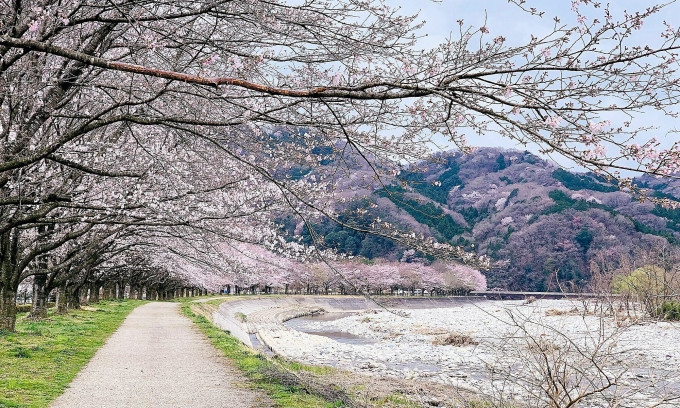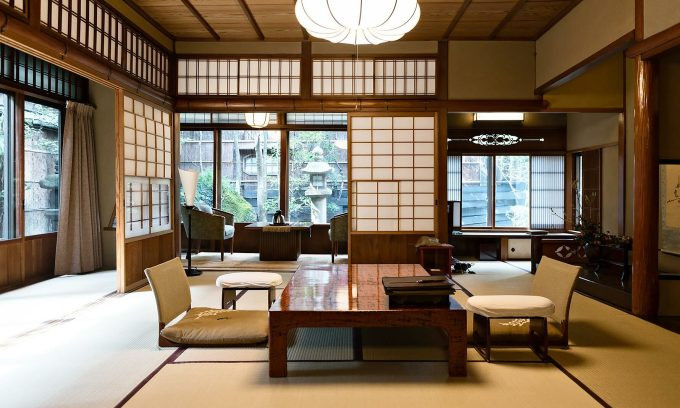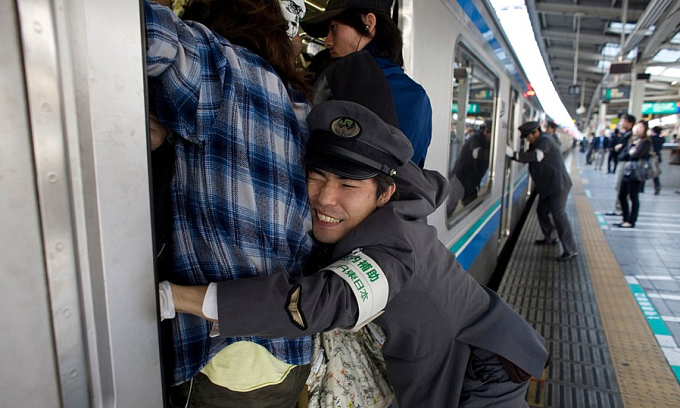Understanding how to use the toilet and bringing cash are two of the things travelers need to remember before traveling to Japan.
According to Lonely Planet, Japan is famous for its many rituals, which can sometimes be annoying to tourists. However, the locals are not really too strict with foreign tourists. Here are some tips from Lonely Planet to help tourists have a good trip.
Book in advance and arrive on time
Visitors should book accommodation early, especially during peak periods such as the first week of January, the cherry blossom festival (late March to April depending on the time), Golden Week (April 29-May 5) or in August.

Cherry blossoms in Kanuma City, Tochigi Prefecture
Arriving on time is important if you choose to stay at a ryokan (traditional Japanese inn) because they often have a set check-in time. After this time, staff may not be available and rooms may not be cleaned.
Prepare luggage
Rooms in Japan are often small, especially in large cities, so there is not much room for bulky suitcases. In addition, carrying large suitcases can be inconvenient for tourists when using public transportation. Tourists should pack light when traveling to Japan.
Religious attractions such as Buddhist temples and Shinto shrines usually do not have dress codes. Upscale restaurants, bars, and clubs sometimes have some rules, but usually only require no tank tops or sandals. However, sitting on the floor to eat is quite common in Japan, so visitors should consider choosing comfortable clothes and avoid tight, short clothes.
Buy high data SIM
Addresses in Japan are notoriously difficult to navigate, even for locals. Therefore, visitors should purchase a SIM card with high data capacity to use for navigation during their travels.
Wear easy to take off shoes
In addition to comfort, visitors should choose shoes that are easy to take off. When visiting Japan, visitors often visit religious sites, traditional inns and eat at restaurants.

A ryokan in Kyoto
These places usually require you to remove your shoes and use your own slippers. Visitors can wear socks to avoid contact when sharing slippers with others.
Learn how to use the toilet
In Japan, electric toilets are popular, with their one-touch cleansing function. Despite some language barriers, using them is relatively simple.
Additionally, some features of Japanese toilets can also confuse visitors, such as motion-activated sound machines in women's toilets, which help mask sensitive noises. Toilets also often lack towels and hand dryers, so visitors should be proactive in preparing.
Bring cash
If you are visiting rural areas, credit cards or electronic payments may not be accepted, so visitors should prepare cash. The "standard Japanese" way to pay is to place money or cards on the tray next to the counter instead of paying directly to the cashier.
In addition, the Japanese do not have a culture of tipping. In the bill, restaurants usually add a "fixed service charge" of about 2.5-4.5 USD per person.
Which side are you on?
When using escalators, visitors must always stand on one side, depending on the location. For example, in Kanto and the eastern region, it is the left side, but in Kansai and the western region, you need to stand on the right side.
The Last Train
The latest metro in the city runs until 1am. If you miss this, your only option is to take a taxi, which can be quite expensive.
Morning in Tokyo
For Tokyoites, the morning commute is like a game of football. Every weekday, between 7:30 and 9 a.m., millions of people cram into the city’s trains. Sometimes, station staff have to help make sure everyone has a seat. Shinjuku Station is known as the world’s busiest, with an average of 3.5 million passengers a day and more than 200 entrances and exits.

A support worker pushes a passenger into a train car in Tokyo.
Learn some basic words
English is widely spoken in cities and tourist areas. However, in rural areas, it may not be useful. Instead, visitors should learn some basic phrases to communicate, such as "sumimasen" (excuse me), arigato (thank you), toire (toilet), mochikaeri (take-out), tennai de (eat on the spot).
According to VnExpress